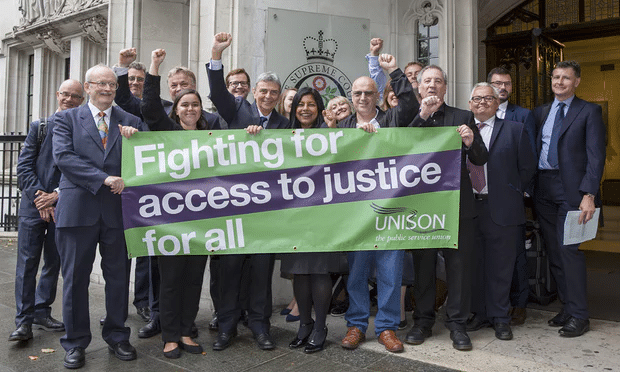Tribunal Fees to be re-introduced?
Reports suggest Government is considering charging workers for bringing Employment Tribunal claims.

The Guardian has reported that the Government may be considering a reintroduction of Employment Tribunal Fees.
The newspaper reports that a source close to the government states that a plan was agreed in Chancellor Rachel Reeves’s June spending review, as part of efforts to find savings in the Ministry of Justice budget, in a drive to recover some of the costs of running the service.
The History
Early last year, the Conservative Government under Prime Minister Rishi Sunak, proposed a £55 fee for workers making an employment tribunal claim, reviving the policy introduced by the Cameron government in July 2013. At this time, the IER issued a collection of informative resources explaining the history of fair access to justice for workers. As the issue has once again reared its head – you can find our work on tribunal fees here: The reintroduction of Tribunal Fees: How did we get here?
Making a claim had been free since tribunals were established in the 1960s until 2013,when Chancellor George Osborne announced that employment tribunals would involve issuing and hearing fees for all claimants – attracting fees up to £1200 for a single person. The decision was found to trigger a ‘sharp, substantial and sustained’ decline in employment tribunal cases, and was challenged in a legal case brough by Unison.
R (on application of Unison) v Lord Chancellor 2017
Tribunal fees were withdrawn in July 2017, after trade union Unison successfully argued before the Supreme Court that the fees prevented thousands of employees, particularly people on low incomes, from securing justice. In this case, the Supreme Court considered two principles of constitutional law that were of particular importance: (1) the constitutional right of access to justice, and (2) the principle that statutory rights should not be hindered or obstructed by subordinate legislation passed under another Act of Parliament. The court unanimously found that ET fees effectively prevent access to justice, and were therefore unlawful. The important point that unless there is a remedy, the right is meaningless was made strongly. Access to the courts is considered fundamental – to ensure that the rights conferred by Parliament are given effect.
Trade union leaders have responded to the suggested return to tribunal fees negatively, with many pointing out that the Employment Rights Bill heavily relies on individually conferred employment rights that are enforced by workers taking their employers to tribunal:
Paul Nowak, general secretary of the TUC, said yesterday:
Everyone should be able to enforce their rights at work. Reintroducing tribunal fees would be a gift for bad bosses and price many low-paid workers out of justice – especially women. Tribunal fees were a disaster when they were introduced under the Tories. They blocked genuine claims from going forward and cost more to administer than they generated. The government should bin any plans to revive them immediately. ET fees would undermine the enforcement of Labour’s hugely popular workers’ rights agenda.
UNISON general secretary Christina McAnea said:
The new rights in the [employment rights] bill will help make work fairer. But they’ll be meaningless if workers can’t enforce them should their employers choose to ignore the law. In the past, tribunal fees denied low-income workers access to justice. That’s why UNISON went to court and got them scrapped. The government shouldn’t even be considering bringing fees back. This would completely undermine all that’s in the bill and be a victory for unscrupulous bosses.







